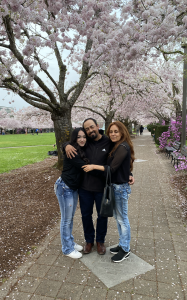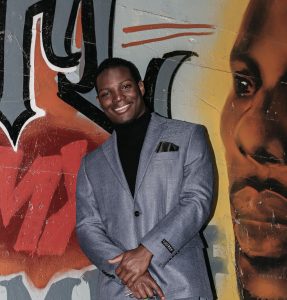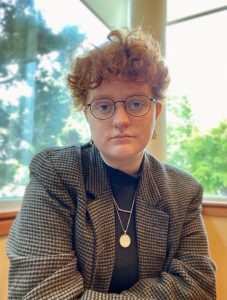Unbound: A First-Year Writing Anthology
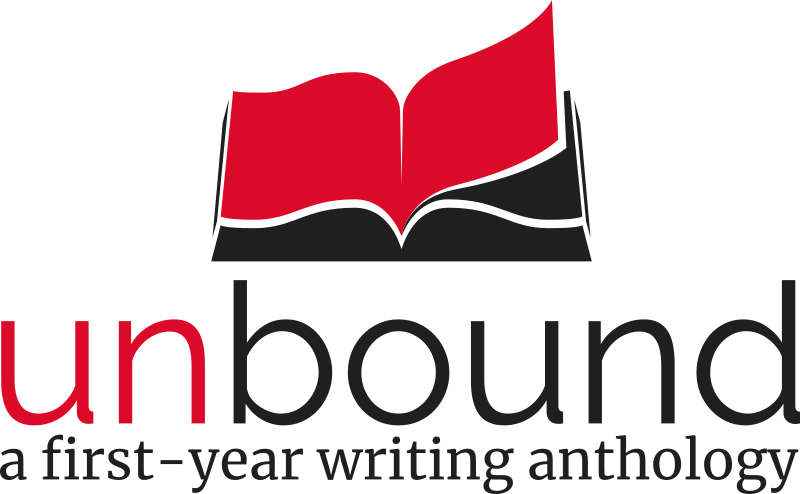
Volume 5
 Blossoms of Resilience: My Journey Through Books and Fields
Blossoms of Resilience: My Journey Through Books and Fields
Winner of Outstanding Essay Award
Author: Guadalupe Ramos Ramirez
Course: WR 121
Instructor: Dr. Kathleen Cassity
Abstract: In my essay, “Blossoms of Resilience: My Journey through Books and Fields,” I aimed to convey my passion for literature and my desire to further my education. I wanted to provide a genuine sense of who I am through my experiences. I was honest about my feelings of shame due to poverty and shared the struggles of growing up and having to support myself. These experiences motivated me to rise above my circumstances. Reading was my favorite pastime, as it offered me a glimpse into other worlds and lives, providing a much-needed distraction from my own challenges.
Bio: Hi, I am Guadalupe Ramos, a first-generation student at WOU. I aspire to become an ICU nurse one day, driven by my passion for taking care of people. I believe nursing is the perfect field for me because it is both challenging and rewarding. Growing up, I began working at a very early age, which taught me invaluable lessons that have shaped who I am today. I believe that if you want something, you have to work for it. I enjoy writing about my experiences in the field because it reveals a unique side of me that you might not expect just from looking at me. I also write to inspire young girls who are in the position I once was, so they know it is possible to achieve their goals, even if those dreams seem distant.
Keywords: Literature, Socioeconomic Class,
 Learning the Hard Way: My Experience with Plagiarism
Learning the Hard Way: My Experience with Plagiarism
Winner of Outstanding Essay Award
Author: Koffi Kouame
Course: WR 121
Instructor: Samantha Morgan
Abstract: This essay explores my personal experience with writing and the impact of plagiarism. Moving from the Ivory Coast to the U.S. created a language barrier and hindered my creativity. However, a key event led to a profound change in my approach, highlighting the value of academic integrity. This essay underscores the importance of ethical writing and the need for culturally sensitive teaching methods to aid students in navigating language barriers and creativity challenges.
Bio: My name is Koffi Kouame, and I am currently a freshman student-athlete at WOU. I am majoring in Criminal Justice and Forensic Psychology. Originally from the Ivory Coast, I grew up in West Linn, Oregon. I am fluent in three languages. In my free time, I enjoy writing narratives, listening to music, and working out. My ultimate goal is to pursue a career in law, where I can make a positive impact on society.
Keywords: Plagiarism, Personal Essay, Immigration,
 Falling into First Year
Falling into First Year
Author: Alyssa Nguyen
Course: WR 121
Instructor: Dr. Leigh Graziano
Abstract: This poem was part of a larger body of work, in which I gave writing advice to first-year students in the style of different genres. This was written in the genre of a more modern poem. It was inspired by the things we learned in class, and some of my own fears and struggles regarding my first year of college.
Bio: Alyssa Nguyen is currently a first-year psychology major at Western Oregon University. After they finish their undergraduate, they plan on getting their masters and going into mental health counseling. They also aspire to write and publish a novel. Alyssa loves creative writing, listening to music, petting their cats, and talking with their friends.
Keywords: Poetry, Writing Process,
 The Green Light Symbolizes Hope: Fixing High School English
The Green Light Symbolizes Hope: Fixing High School English
Author: Caleb Ihne
Course: WR 121
Instructor: Dr. Kathleen Cassity
Abstract: This essay explores the faults in the way classic literature is taught in the high school curriculum. It provides a deep dive into the various ways in which classic literature is done a disservice when taught and how this teaching, in turn, negatively affects the students. It also provides potential solutions aimed at promoting diversification and understanding of the works and combating resentment towards the genre as a whole.
Bio: My name is Caleb Ihne. I’m majoring in History with a minor in International Studies, and I’m a member of the WOU Model United Nations. I hope to one day work abroad for an international organization. As evidenced by my essay, I have a long-standing love for classic literature—my favorite novel is The Picture of Dorian Gray by Oscar Wilde, and I cannot stand how schools teach it.
Keywords: Literature, Pedagogy,
 Self-Made Shackles and Self-Made Keys
Self-Made Shackles and Self-Made Keys
Author: Samantha Winkler
Course: WR 121
Instructor: Wesley Mathis
Abstract: A fusion of essay and fairy tale that reflects upon the first writing class taken in college, this piece follows a dreamer’s journey through discovering how best to overcome the obstacles in the way of being free to create.
Bio: Samantha is a biology student with dreams to get a PhD in Genetics. She is an artist in every way she can manage who is currently writing her first book and loving every second of school, no matter how busy she is.
 Romanticized Toxicity
Romanticized Toxicity
Winner of Outstanding Essay Award
Author: Jennifer Perez Ramos
Course: WR 122
Instructor: Tandy Tillinghast
Abstract: This paper captures a small scope on how cultures have romanticized toxicity, a once derogatory term. Through my writing, the reader looks into the minds of those who find toxic relationships attractive, and learns how we are influenced by our surroundings to have toxic desires.
Bio in English: Hello, my name is Jennifer Perez Ramos. I am a third year student at Western Oregon University. My career goals are to achieve two bachelor’s degrees: one in Early Childhood Education with an ESOL (English to Speakers of Other Languages) Endorsement and another in Spanish with a Certificate as an Interpreter. My biggest goal is to one day make a bigger difference.
Bio in Spanish: Hola, mi nombre es Jennifer Pérez Ramos. Soy estudiante de tercer año en la Universidad de Western Oregon. Mis metas profesionales son lograr dos licenciaturas: una en Educación Infantil Temprana y otra en Español. También obtener mi agregado de ESOL (Inglés para Hablantes de Otros Idiomas) y un Certificado como Intérprete.
Keywords: Toxicity, Cultural Studies,
The Power of Pathos: How Nature Poetry Spurs Engagement in Climate Change Activism
Winner of Outstanding Essay Award
Author: Hayden Mickelberry
Course: WR 122
Instructor: Wesley Mathis
Keywords: Pathos, Climate Change, Poetry,
 The Evolution of Personal Language: Effect and Expression, A Comparative Analysis of Ancient Personal Writing
The Evolution of Personal Language: Effect and Expression, A Comparative Analysis of Ancient Personal Writing
Author: Keeton Sanchez
Course: WR 122
Instructor: Wesley Mathis
Abstract: This paper compares contemporary personal writing with the ancient style seen in Marcus Aurelius’s Meditations. By analyzing survey data from college students and examining the ancient text, this paper explores the evolution of personal writing. The survey helps highlight how modern writing emphasizes emotional release and creativity while ancient writing focused on introspection, revealing both continuity and change in personal language use.
Bio: My name is Keeton Sanchez. I am an Exercise Science major with a minor in Psychology. I journeyed to Western Oregon from Arizona with the goal of becoming an Occupational Therapist, as well as continuing my love for running by competing on WOU’s track and cross-country teams.
Keywords: Pathos, Personal Writing, Stoic Philosophy,
 “Hawai‘i 78”: Through the Lens: Code-Switching in Songs
“Hawai‘i 78”: Through the Lens: Code-Switching in Songs
Author: Brianna Tadaki
Course: WR 122
Instructor: Wesley Mathis
Abstract: “‘Hawaiʻi 78’ Through the Lens” is a deep dive into not only my heart but the hearts of Hawaiʻi’s indigenous people. My paper takes you on a journey through simple yet complex song lyrics that reveal deep meaning as to why the anger, joy, and love the people have for Hawaiʻi and the injustices they encountered during the annexation. I hope that you will be enlightened by this brief insight into my culture through “Hawaiʻi 78.”
Bio: I was born and raised on the beautiful island of Oʻahu. I have two brothers and a sister. I graduated from Maryknoll High School where I met some of my best friends and I still hang out with them from time to time when we are all home. I am majoring in Early Childhood Studies and hope to open a daycare of my own back at home. Some things I like to do in my free time are going to the beach, hanging out with friends/family, and eating.
Keywords: Hawaiʻi, Code-Switching,
Volume 4
Winner of Outstanding Essay Award
Author: Bree Trickel
Course: WR 121
Instructor: Tandy Tillinghast
Abstract: An untraditional essay in which mental health is paired with poetry. It is spoken prose and meant to combine art with assignment. In particular, what one can get from writing and learning experiences, and why teachers are so important.
Keywords: Literacy narrative, poetry, prose, writing experiences

Winner of Outstanding Essay Award
Author: Jennifer Perez Ramos
Course: WR 121
Instructor: Tandy Tillinghast
Abstract: This essay is about the challenges I’ve had with learning a new language and refinding my love and skills for my home language. Through my writing, you will read about the negativity that clouded my early education and how I am still actively trying to find myself as a bilingual academic learner and as an American of Mexican descent.
Keywords: Literacy narrative, English/Spanish, language practices

Multi-Genre Essay: Advice for First Year College Students
Author: Torie Arnold
Course: WR 121
Instructor: William Haas
Abstract:This paper includes various writing pieces to present the overall theme of how the first year writing course is to the reader who is a first year freshman in a fun, engaging, and creative format utilizing different genres.
Keywords: First-year writing, genres, stylized writing, audience
Author: Miriam Herrera Hernández
Course: WR 121
Instructor: Wesley Mathis
Abstract: “The Math of Family: A Daughter’s Quest for Knowledge” is a captivating narrative about a Mexican-American girl’s journey into learning. With themes of encouragement, perseverance, and resilience, this coming-of-age story demonstrates an unwavering commitment to personal growth and academic success. By demonstrating the importance of mathematical literacy in daily life and self-improvement, this essay emphasizes that knowledge is not an innate gift but is earned through hard work and dedication.
Keywords: Literacy narrative, math, English/Spanish, growth mindset
To Swish or to Mesh
Winner of Best Essay Award
Author: Isaiah Limu
Course: WR 122
Instructor: Wesley Mathis
Abstract: For this essay, I wrote about code switching and code meshing, two different practices that we as people use everyday, sometimes unconsciously. The essay is made up of two interviews. I decided to interview my mom and my grandma, because they are the two people that I am closest to in my life. I asked them about the impact that code switching has had on their lives, and I discuss the difference between code switching and code meshing. My main goal of this essay was to convey to the reader why both concepts are essential to everyday communication, and I hope that readers can read the essay and understand why I believe that both should be used but they should be used in certain, appropriate situations.
Keywords: Code switching, code meshing, primary research, writing situations
The Victim Impact Statement: Chanel Miller’s Influence On an Evolving Genre
Winner of Best Essay Award
Author: Julia Davies
Course: WR 122
Instructor: Wesley Mathis
Abstract: Genre analysis of victim impact statements and the influence Chanel Miller had on extending the conventions of the genre’s rhetorical work. Trigger warning: this paper discusses sexual assault.
Keywords: Genre analysis, primary research
Author: Carly Turpen
Course: WR 122
Instructor: Samantha Morgan
Abstract: Whether it be between players or coaches, effective communication is crucial in the game of softball. This study took information from observing and surveying players on the WOU softball team to find that goal setting, positive and clear coaching language, and communication from the dugout and on the field are the forms of language that help the team reach success. More research should be done to get coaches’ points of view in this discourse community.
Keywords: Discourse community, primary research, lexis, communication, softball
Author: Kira Ryder Morgan
Course: WR 122
Instructor: Wesley Mathis
Abstract: A dive into the world of the South Korean music industry and the deep parasocial relationships formed from it. This essay discusses how K-pop companies persuade fans to feel connected and close to their idols, and how quickly controversy can destroy these parasocial relationships. It analyzes two examples of cancel culture’s effects on the bond between idols and fans.
Keywords: Persuasion, discourse community, cancel culture, relationships
Volume 3

Under the Microscope of Forensic Science
Winner of Outstanding Essay Award
Author: Makenna Bergerson
Course: WR 121
Instructor: Samantha Morgan
Abstract: An interview-based analysis of the writing, research, and genre conventions involved in forensics. The author considers how forensic scientists are used in the criminal justice community, some of the general protocols, as well as the specific fields one can pursue in forensics.
Keywords: STEM, forensic science, discourse community, genre analysis

Writing is Right the First Time
Winner of Outstanding Essay Award
Author: Laticia Garcia
Course: WR 121
Instructor: Samantha Morgan
Abstract: Reflects on the myth that writing is right the first time, when in reality it is important to make errors to improve one’s writing ability.
Keywords: Writing construct, error, drafting

Grasping My Fragile Heart
Author: Addie Floyd
Course: WR 121
Instructor: Tandy Tillinghast
Abstract: A literacy narrative in which the author describes the transformative power of reading and writing in her life. In particular, she describes the emotional feelings she had while reading The Book Thief.
Keywords: Literacy narrative, reading, powerful authors, pathos

Going The Distance: Cohesion’s Relationship to Discourse Communities
Winner of Best Essay Award
Author: Katie Chapman
Course: WR 122
Instructor: Dr. Leigh Graziano
Abstract: Original inquiry project examining the role of cohesiveness in the WOU cross country team. The author concludes by arguing that cohesion is a characteristic that should be added to Swale’s (1990) list of discourse community criteria.
Keywords: Discourse community, cohesion, primary research, cross-country

Language in Vaccine Hesitancy and Anti-Vaccination Ideology
Winner of Best Essay Award
Author: Emmaline O’Donnell
Course: WR 122
Instructor: Tandy Tillinghast
Abstract: An original inquiry project, exploring the role of language in vaccine hesitancy and anti-vaccination beliefs through primary and secondary research.
Keywords: STEM, language, discourse community, public health

Values and the Glorification of True Crime Fandoms
Author: Malissa Brooks
Course: WR 122
Instructor: Dr. Leigh Graziano
Abstract: True-crime walks the line between education and glorification, but how can a podcast assert specific values on its listenership? This essay analyzes the longest-running comedy true-crime podcast, Last Podcast on The Left. By examining the themes and strategies the hosts of LPOTL use, this essay shows how the hosts strategically imprint their values upon their listeners and the Reddit community page.
Keywords: Online discourse community, corpus textual analysis, true crime, ethos and value adherence
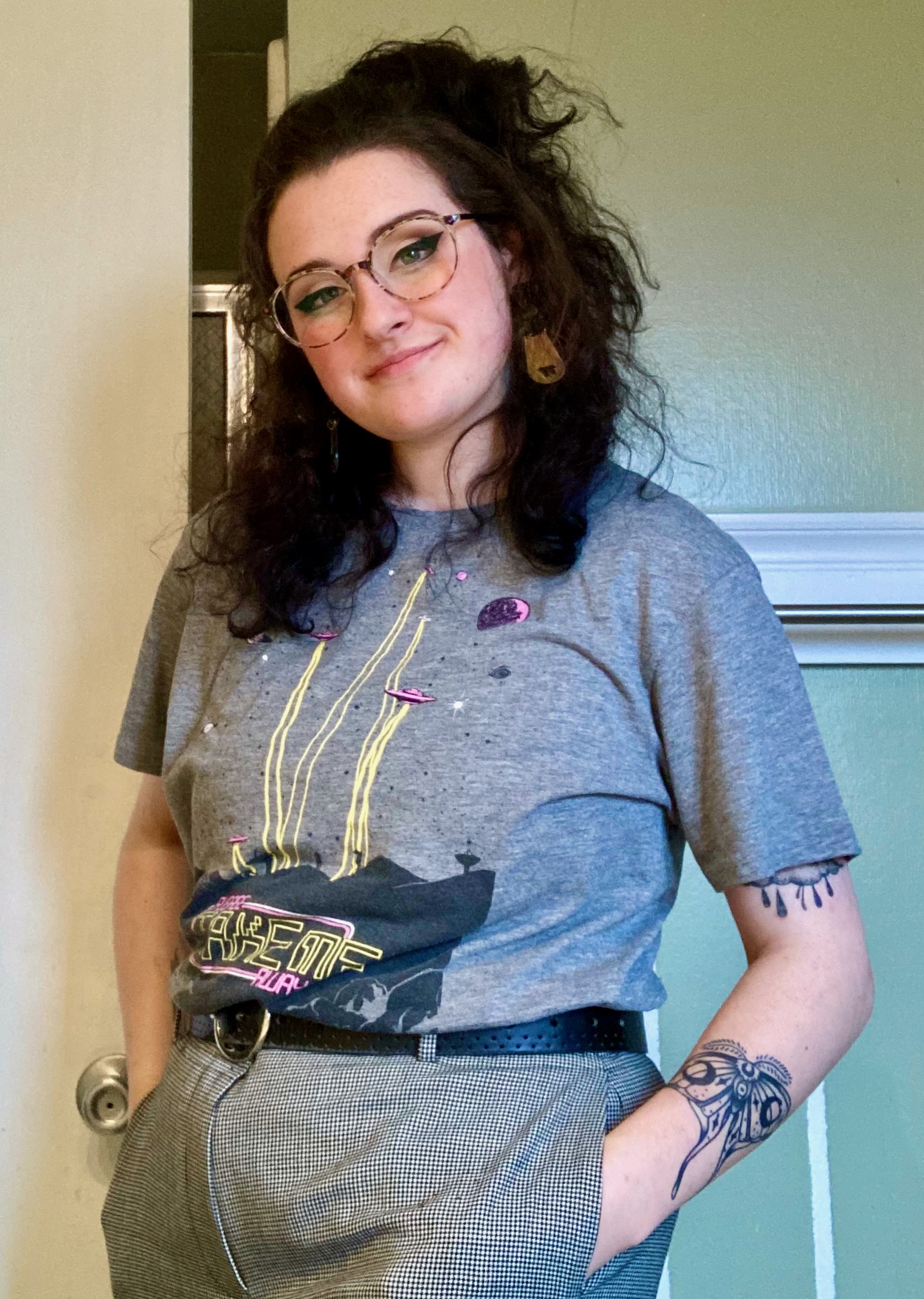
Smart-Ass Women: The Rhetoric and Culture of an Online ADHD Support Group
Author: Ashlynn Norton
Course: WR 122
Instructor: Dr. Leigh Graziano
Abstract: This study focuses on a women-only ADHD online discourse community using observations to analyze their rhetoric and culture with the goal of bringing more attention to studying women-only online disability support groups and their importance to society.
Keywords: Online discourse community, textual analysis, observation, ADHD, disability support groups, safe spaces, rhetoric

Dancing with Inclusivity: The Importance of Integrating Genderless Terminology into Swing Dance Spaces
Author: Guinievere R. Olander
Course: WR 122
Instructor: Dr. Leigh Graziano
Abstract: This original inquiry project examines the nature of gender-inclusivity in swing dance spaces and reflects on whether or not gender neutral language, rather than gendered language, has an impact on the feelings of acceptance for dancers regardless of gender identity or conformity. This project uses primary research gathered from the WOU Swing Dance Club.
Keywords: Discourse community, primary research, gender, language, identity, inclusivity, noncomformity, swing dance
Volume 2

Can Different Community Groups Inform the Way We Communicate?
Winner of Outstanding Essay Award
Author: Justin Davis
Course: WR 121
Instructor: Dr. Casie Moreland
Abstract: This essay examines how personal social constructs and discourse communities influence literacy development and language practices for a Black individual living in a predominately white society.
Keywords: Literacy, Discourse Communities, Social Constructs, Race

African American Vernacular should be Included in Learning About Writing and Reading
Winner of Outstanding Essay Award
Author: Caprice M. Massey
Course: WR 121
Instructor: Wesley Snyder
Abstract: This essay presents primary and secondary research to illustrate why African American Vernacular English (AAVE) should be treated like other foreign languages in the teaching and learning of Standard Written English (SWE). The author argues that AAVE is not just bad English but it’s own vernacular that has importance within the African American culture.
Keywords: AAVE, Writing Construct, Literacy, Linguistics, Race

Multiliteracy and Online Discourse Community: How SENG Meets the Needs of the Dispersed Gifted Community Over a Lifespan
Winner of Outstanding Essay Award
Author: Sara Cash
Course: WR 122
Instructor: Wesley Snyder
Abstract: Discusses the use, and benefit, of online genre by dispersed, isolated members of the gifted community via the agile discourse community, Serving Emotional Needs of the Gifted.
Keywords: Genre Analysis, Literacy, Online Discourse Communities

A Genre Analysis of Facebook Mormon Stories Podcast FB Community
Winner of Best Essay Award
Author: Rachel Nye
Course: WR 122
Instructor: Wesley Snyder
Abstract: This paper delves into the literary tool kits or grief processing tools for those transitioning out of Mormonism. Community members communicate through personal posts, commentary on live FB podcasts where members/scholars are interviewed in the group. Genres mobilized within the Mormon Stories Podcast Community are used as a literary tool kit that collectively works to aid them through a faith transition into healing.
Keywords: Genre Analysis, Literacy, Discourse Community

Federal Disconnect: The Navajo Nation’s Sovereignty and Justice Must Be Respected
Winner of Best Willamette Promise Essay
Author: Skye Grubb
Course: WR 122
Instructor: David Howell, Jefferson High School
Abstract: This essay argues that the damaging practices of both historical and modern colonialism, particularly in terms of our criminal justice system, continue to harm the Navajo Nation’s relationship to its people and its culture and ignores the important role Navajo practices of restorative justice are to their community.
Keywords: Native American Sovereignty, Colonialism, Restorative Justice, Research-Based Argument

Genres Within a Day of Nursing
Author: Miaja Spensley
Course: WR 121
Instructor: Samantha Morgan
Abstract: Want to become a nurse? Throughout the workplace of professional nurses, they use many different genres of writing documentation to obtain the best patient care. This essay examines each documentation a nurse must write and understand on a daily basis and explains how one becomes a nurse in such a changing and flexible environment.
Keywords: Genre Analysis, Workplace Writing
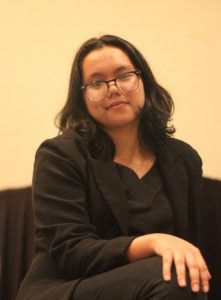
A Shift From Rules to Tools
Author: Samila Sevugan
Course: WR 121
Instructor: Tandy Tillinghast
Abstract: Reflects the importance of the role writing constructs hold against a writer’s ability to expand and further the discovery of their writing identity and purpose.
Keywords: Writing Construct, Academic Writing, Writer’s Block
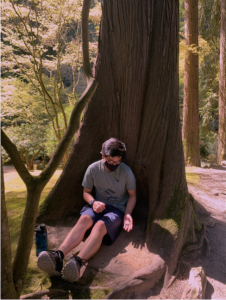
How to Bend the Rules on Writing
Author: Andrew Ashley
Course: WR 121
Instructor: Wesley Snyder
Abstract: An essay exploring the autor’s early teachings of writing constructs, and the contradicting teachings of writing constructs utilized in higher level education. The author urges the audience to rethink strict rules of writing and learn when it is appropriate to break the rules of writing constructs in certain situations.
Keywords: First Person, Writing Constructs
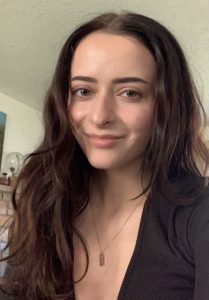
Discourse Community of Servers: The Environment’s Effect on Behavior and Lexicon
Author: Becca Brooks
Course: WR 122
Instructor: William “Matt” Haas
Abstract: A detailed look into the front of house customer service discourse community, including its curated lexicon and conduct.
Keywords: Discourse Community, Lexicon, Workplace Writing

Unearthing Identity: Characteristics Restricting Female Leadership in the Evangelical Church
Author: Faith DeVyldere
Course: WR 122
Instructor: Wesley Snyder
Abstract: Identifies the prescribed characteristics of females in the U.S charismatic evangelicalchurch, as well as common rationales for these gendered expectations. Connects these ideals to the disparities between women and leadership in these communities.
Keywords: Discourse Community, Identity, Literacy, Gender

How Telenovelas Function in the Latino Community
Author: Yaritza Marquez Camacho
Course: WR 122
Instructor: William “Matt” Haas
Abstract: How telenovelas Function In the Latino Community is a brief essay justifying how telenovelas have affected the hispanic community. The text analyzes various ways on how the hispanic community feels connected to telenovelas and how telenovelas use language or writing.
Keywords: Discourse Community, Latinx, Identity
Volume 1

Projecting Into the World of Dungeons and Dragons
Winner of Outstanding Essay Award
Author: Alex Decknadel
Course: WR 122
Instructor: Samantha Morgan
Abstract: Projecting into the World of Dungeons and Dragons is an argument about the tabletop role-playing game Dungeons and Dragons (D&D) as a discourse community and how players of D&D project themselves as characters within an imaginative setting shared by the players. Through the D&D sessions I participated in and articles I’ve read, I discovered that players have to interact with one another to project themselves as their characters.
Keywords: Dungeons and Dragons, Lexis, Character Interactions, Identity, Performance, Discourse Community
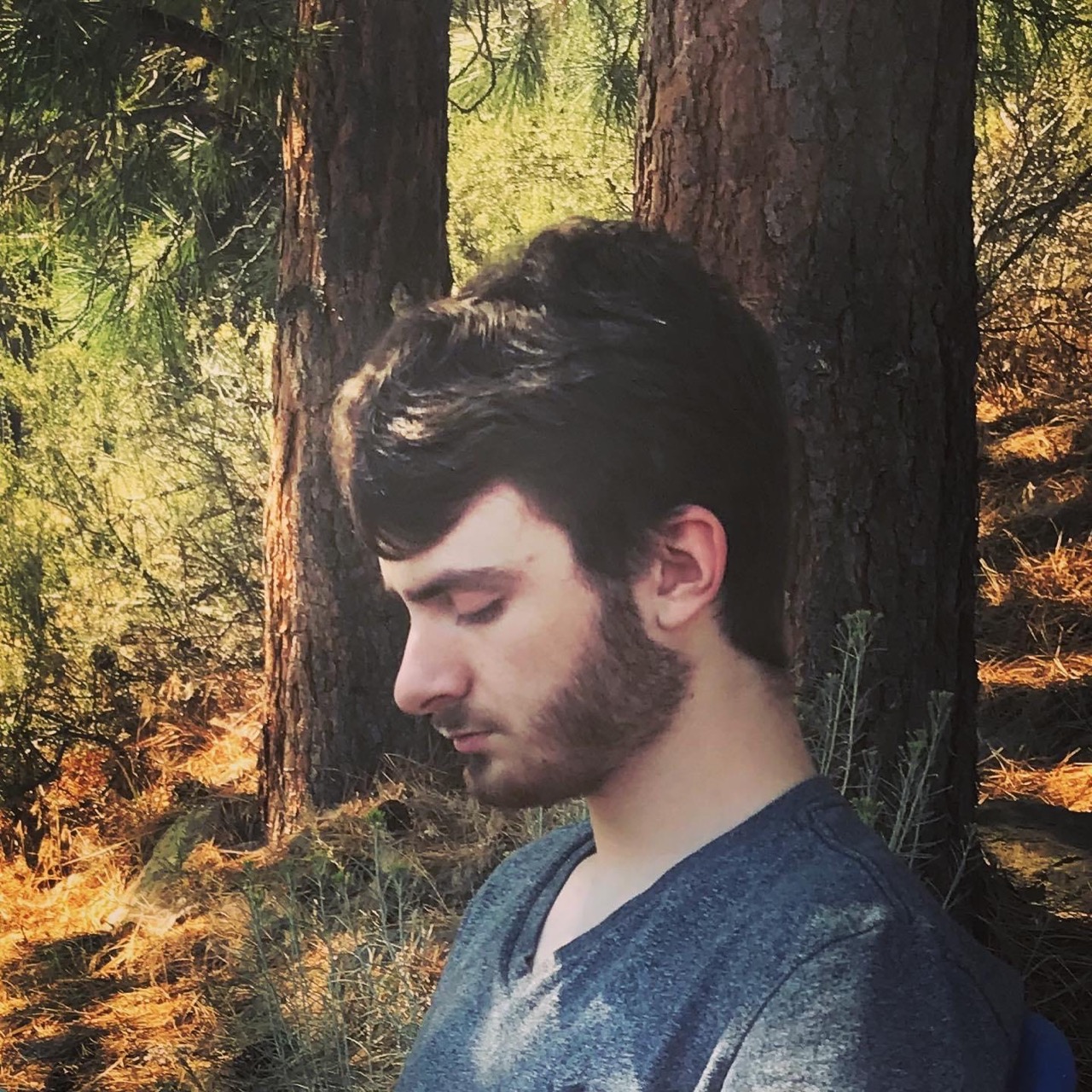
How “Big A Little A” Alludes to Britain’s Instability During the 1980’s
Winner of Outstanding Essay Award
Author: Bo Moskal
Course: WR 121
Instructor: Wesley Snyder
Abstract: A brief look into how social and political unrest created a boom in punk rock’s popularity in Britain. This essay is a rhetorical analysis of “Big A Little A” by British punk rock band Crass and how it is relevant to the climate of the 1980’s.
Keywords: Rhetorical Analysis, Historical Context, Punk Rock, Rhetorical Situation

Barista Lexicon and Its Effects on Customer Interactions
Winner of Outstanding Essay Award
Author: Jenifer Webb
Course: WR 122
Instructor: Dr. Leigh Graziano
Abstract: Through the use of both primary and secondary research, this essay addresses the major ways in which barista lexicon influences customer interactions. The results conclude that barista lexicon influences customer interactions by creating a barrier between the two, enhancing customer experience, and by providing a learning experience.
Keywords: Lexis, Workplace Literacy, Barista, Customer Interactions, Discourse Community

Immigration Reform: The Influence of Nativism in Political Rhetoric and its Impact on Immigration Policy-Making
Winner of Best Willamette Promise Essay
Author: Alayna Gilliland
Course: WR 122
Instructor: Kari Bloomquist
Abstract: Examines the political rhetoric surrounding the President’s “Build the Wall” campaign, the effectiveness of the wall in solving southern immigration concerns, and the negative impact the campaign’s rhetoric has on attitudes towards Latinx communities in the United States
Keywords: Political Rhetoric, Nativism, Immigration, Rhetorical Analysis

Smartphone Effects on Literacy and Language
Author: Brandi Grunberg
Course: WR 121
Instructor: Dr. Casie Moreland
Abstract: This text analyzes how the development of phones over the course of their existence have influenced language and literacy. The convenience, efficiency, and mobility of phones are addressed in the ways in which they have connected people, created a global community, and increased proficiency with the tools people through which people are exercising literacy.
Keywords: Technology, Smartphones, Literacy, Community

The Let’er Buck Spirit
Author: Jenni Kannier
Course: WR 122
Instructor: Dr. Leigh Graziano
Abstract: Examines the significance of code switching when speaking to consumers versus coworkers in a retail setting. This essay analyzes the impact of body language, tone of voice, and establishing authority and illustrates the influence different lexises may have on consumers.
Keywords: Code Switching, Retail, Authority, Nonverbal Communication, Lexis, Workplace Relationships, Discourse Community

Genres Keep a Law Firm Moving Forward
Author: Fengqi Li
Course: WR 122
Instructor: Dr. Leigh Graziano
Abstract: An analysis of the main genres used by a law firm in China. This essay examines the work those genres perform and their relationships with each other.
Keywords: Genre, Genre Analysis, Law firm, Workplace Efficiency, Discourse Community
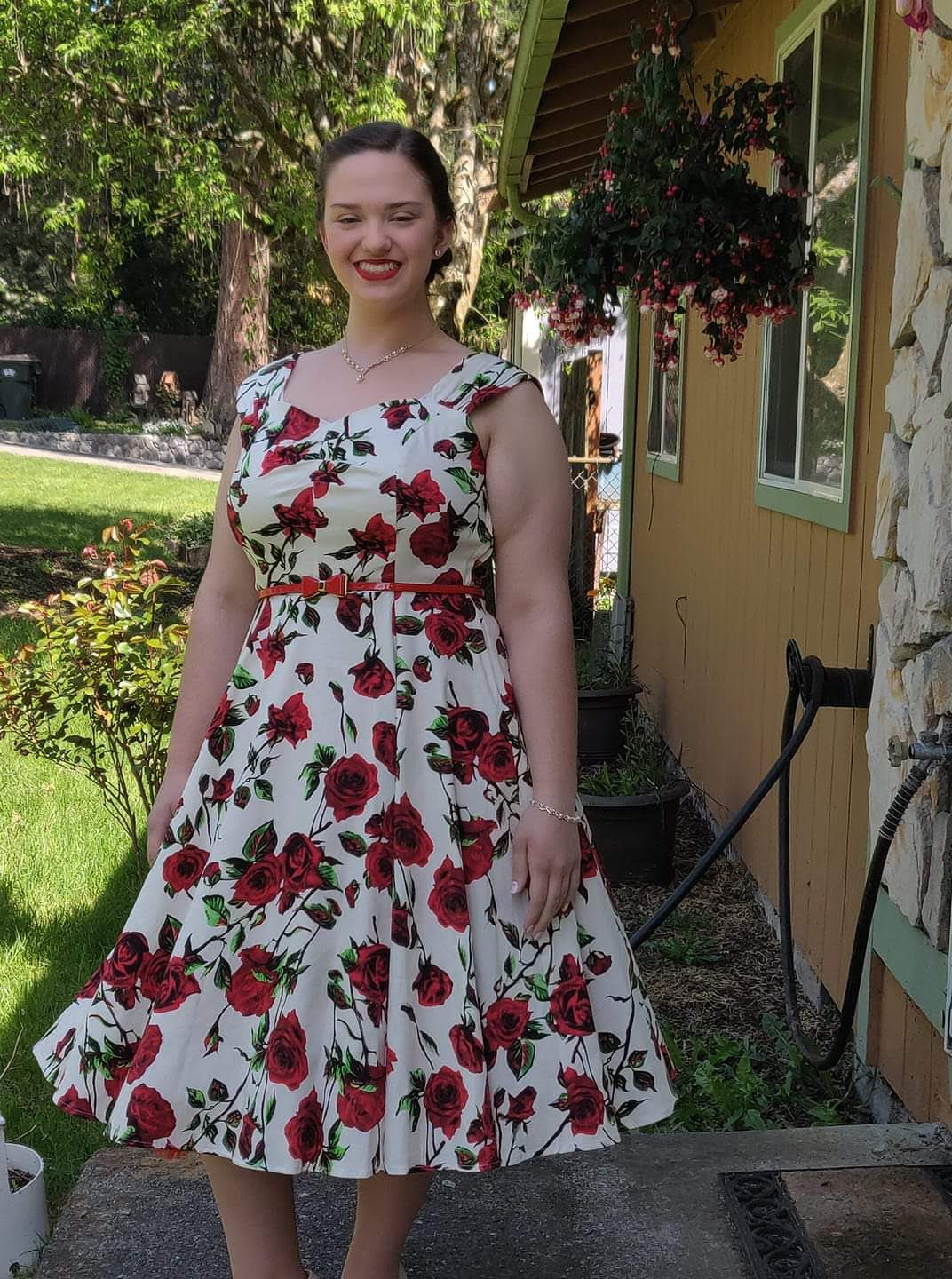
Je Ne Sais…Meh
Author: Gracie Meives
Course: WR 121
Instructor: William “Matt” Haas
Abstract: This narrative shares the writer’s personal adventure with literacy. It covers her struggles and successes with reading and writing, and reflects on the significance of her literacy journey and the change she experienced from her own perseverance.
Keywords: Literacy Narrative, Literacy Sponsors

